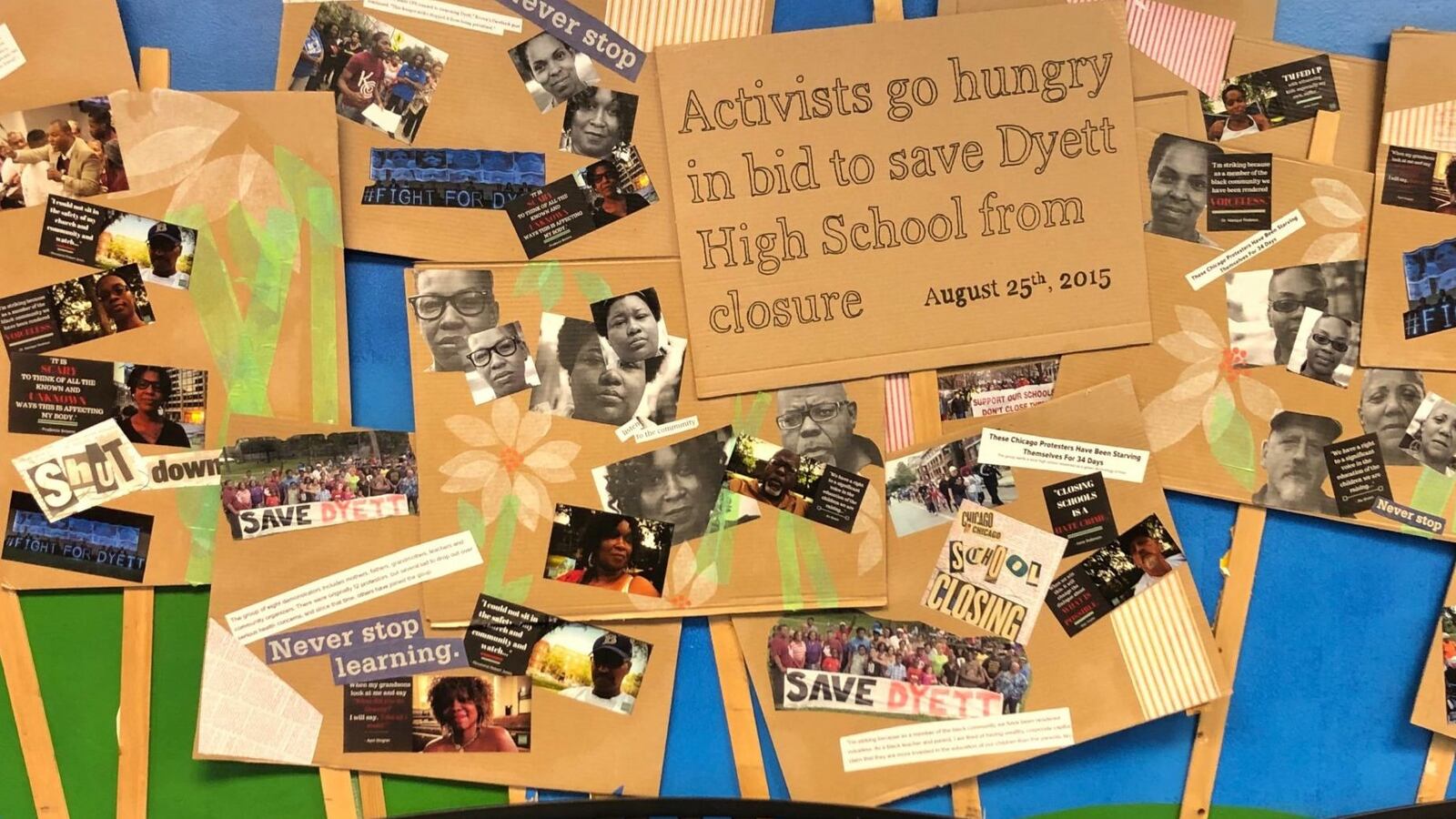Special education teachers want more aides. Parents want more music teachers and librarians, while alumni are asking for a more diverse teacher workforce.
And if a specific request can’t be funded, they want the district to tell them why.
At Chicago’s first-ever round of public feedback meetings in recent memory on the school budgeting system, parents and educators turned out in droves to explain and demand what the school district should fund.
Now, a working group of educators and administrators, brought together by Mayor Lori Lightfoot, will consider the suggestions and recommend how Chicago should change its complicated school budgeting system, and what schools should offer.
They face a challenging mandate: how to meet needs and desires and fix school funding without getting more money for an underfunded system?

Chicago receives more than $7 billion for education but steers only about half that to the campuses it runs. The rest goes to pensions, capital expenses, citywide and network level support, charter schools, and central office administration.
And while some advocates hope the state will tax the rich more to boost revenue, it’s not certain that will happen, or how much would trickle down to schools.
Here is what to watch as it moves forward:
The proposed changes could be implemented as soon as the next budget cycle.
The working committee will recommend how to make next school year’s budget more equitable.
Among the ideas on the table: funding that works more like the state’s model, which gives schools more money based on student need; a continuation of the targeted pots of money awarded to some schools; and a new timeline for releasing budgets, to help principals plan.
This is only the first round of public feedback meetings.
This process is likely going to be a model for other efforts to solicit and incorporate public response. The district will seek community input into its long-term budget process, according to a recent district presentation. The district promised that anyone who participated in one of the public meetings will receive a follow-up survey.
The district will hold similar public feedback meetings about the upcoming capital budget discussions on campus improvements. Parents and activist groups, along with some board members, have criticized the previous process for being opaque and difficult to understand.
Parents and educators were specific in what they wanted to see in their schools.
In the budget hearings parents and educators talked less about process and more about what they’d like to see on their campuses. In interviews with Chalkbeat, they mentioned smaller class sizes for special education students, more librarians and music teachers, parent mentoring programs, and extracurricular activities, among others.
Even if the budget formula shifts, Chicago faces tough decisions to deliver money more equitably to schools — the stated goal.
In Chicago a gap yawns between have and have-not campuses, separating schools where veteran teachers tend to flock with their higher salaries or parents can raise funds to supplement staff and supplies, from campuses with younger, inexperienced teachers or no parent fundraising groups.
There’s also another critical factor that determines how much money a school gets: its enrollment. In Chicago, which is steadily leaking population, the district has lost 54,100 children in a decade. That has left 145 district-run schools less than half-full, according to the latest round of capacity data.
Chicago must decide how enrollment should count toward a school’s budget, with the district propping up dozens of small schools with additional funds. It will have to determine how to factor in the distribution of experienced — and more expensive — teachers.
Some advocates, including the Chicago Teachers Union, seek an influx of new funds. Gov. J. B. Pritzker has pinned his hopes on passing a graduated income tax to provide more revenue for schools. That move would need a constitutional amendment to proceed.
The committee will release its first report in March.
The budget working group is supposed to issue its first report next month, using information gathered from the public meetings as well as informational sessions organized by the district. Overhauling the budgeting process could take years.
Carlos Azcoitia, a former district principal in Little Village and a member of the committee, said the group was considering school funding scenarios based on how many students are in a school, as well as need. Azcoitia said he would draw on his personal experiences to help shape his input.
“As a principal for 10 years … I served a population that had the greatest aspirations but also a greater need,” he said, noting the large number of immigrant and homeless students at his school.
This story is part of the Lens on Lightfoot series, a collaboration of seven Chicago newsrooms examining the first year of Mayor Lori Lightfoot’s administration. Partners are Chalkbeat Chicago, the Better Government Association, Block Club Chicago, The Chicago Reporter, The Daily Line, La Raza and The TRiiBE. It is managed by the Institute for Nonprofit News.

